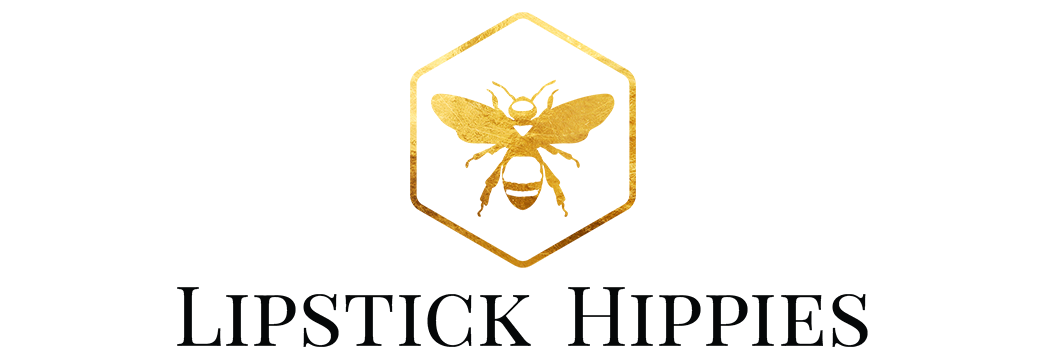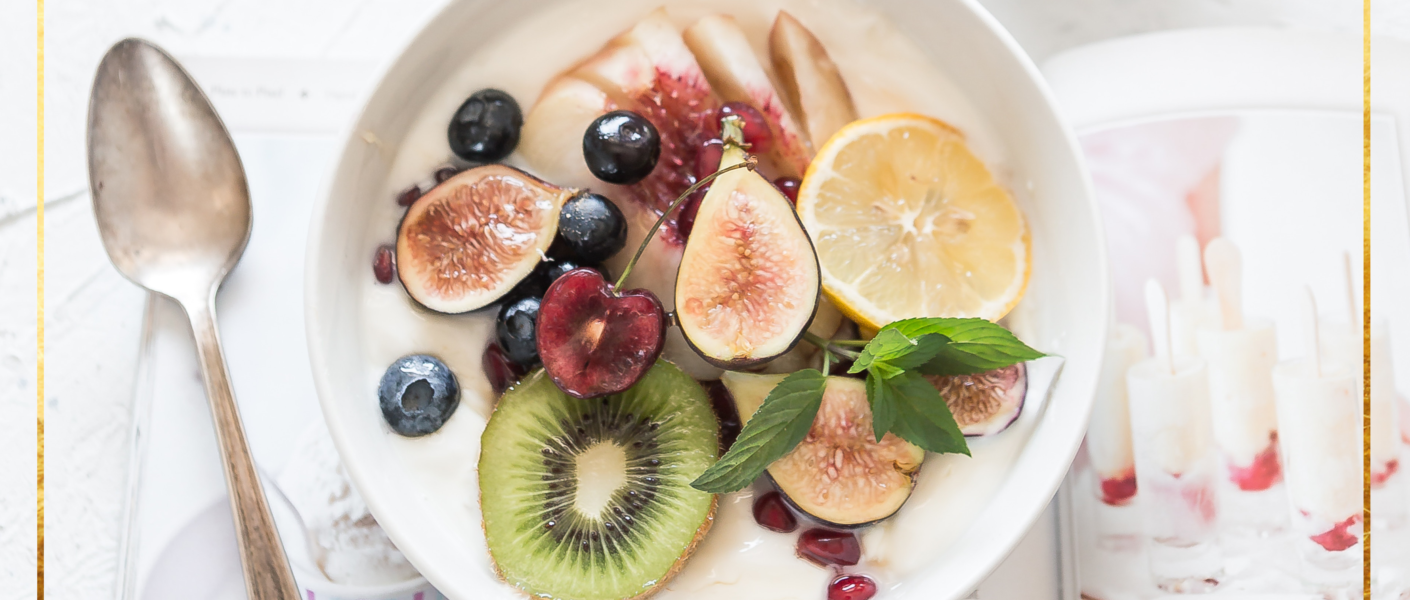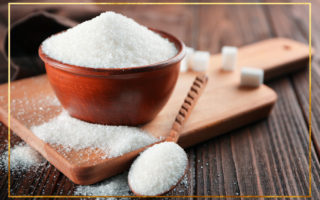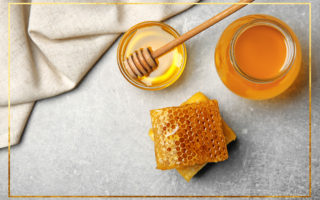It’s easy to consider the current “organic,” “all-natural,” “GMO free” lifestyle trend as just that – a trend.
For some of us, the price tags alone are a deterrent to improving our product choices, be it diet or cosmetics.
But did you know that the US has some of the lowest product standards in the world?
We allow a disappointingly high number of toxins and chemicals into our food chain and our personal care products, solely because it’s easily provided and cheap to purchase.
Let’s start with an introduction to how our food is being manufactured to minimize its value to you. Then let’s explore how every product and good you touch in a day can either hurt or help you.
You can click to scroll ahead, we’re going to cover:
- Are You at Risk?
- Americans are Being Poisoned
- So What Can You Do?
- It Goes Beyond Diet
- Prepare to Make Changes
- Here’s How To Get Started
Are You at Risk?
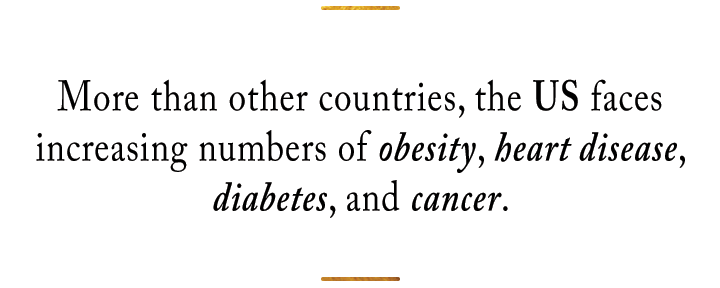
Yes, these are all very serious diseases. But even if you don’t believe you’re at a risk for heart disease or diabetes, chances are you’re not as healthy as you think you are.
How many of the following can you say, ‘yes’ to?
- Do you ever feel bloated?
- Do you suffer from severe cramping and/or irregular periods?
- Are you overweight or have stubborn belly fat?
- Do you have allergies (seasonal or food-related)?
- Do you ever feel anxious?
- Have sleep that isn’t restful at night?
- Do you crave specific foods?
- Do you catch a lot of colds?
- Are you prone to acne?
I bet it was quite a few.
The “easy” answers to these issues mostly revolve around the pharmaceutical industry and the myriad of medicinal goods staring us down in every pharmacy aisle.
There are dozens of pills you can buy for every ailment I just listed!
Put down your caramel macchiato and pull up a chair – because I’m here to tell you that you can cure every ailment in your life – and it may actually save you money, to boot.
It’s all about how you treat your body.
Every meal you eat, every lotion you rub on your skin, every choice you make to consume something – is an opportunity to nourish your body and help it perform to its highest level!
That caramel macchiato is the perfect example.
Do you look forward to it every morning? I bet it’s delicious and comforting and filling. But, it’s also setting you up to crave sugar for the rest of the day.
Your first choice is affecting your future choices. And diet is only the beginning.
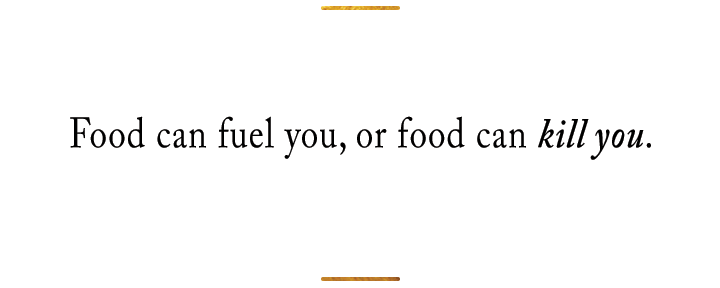
Americans are Being Poisoned
The foods that Americans are consuming en mass have been deeply altered, a practice that is not common elsewhere in the world.
In an effort to remove any potential bacteria from mass production, we are essentially sterilizing everything we eat – and that includes removing probiotics and nutrients from our food.
We are also a society that embraces refined sugars and complex carbohydrates, both empty calories that fail as sources of sustainable energy or brain power.
And at the same time, 117 million Americans have one or more preventable chronic diseases. That’s over a third of our population.
Does it come as a surprise to you that many of these are correlated with a poor diet and lack of physical activity?
Here are some of the major issues facing the typical American diet today:
- Pasteurization
- Processing
- GMOs
- Wheat/Gluten Overindulgence
- Refined Sugar
Let’s take a deeper look at how these processes alter the foods we eat, and the reactions we experience from an overindulgence of those delicious foods filled with gluten and sugar.
Pasteurization
“Pasteurization is the process of heat processing a liquid or a food to kill pathogenic bacteria to make the food safe to eat. The use of pasteurization to kill pathogenic bacteria has helped reduce the transmission of diseases, such as typhoid fever, tuberculosis, scarlet fever, polio, and dysentery.”
Yes, all those diseases we learned about playing good ol’ Oregon Trail.
So why did we start pasteurizing foods? Because food safety essentially didn’t exist back in the 1860s.
Refrigeration? Nah, they just put food on ice until it melted. Concern for cross-contamination? Nope, just wipe that knife and keep on going! Want to make food last longer? Just add salt!
Both pasteurized and unpasteurized foods will go bad if stored improperly in unsanitary conditions.
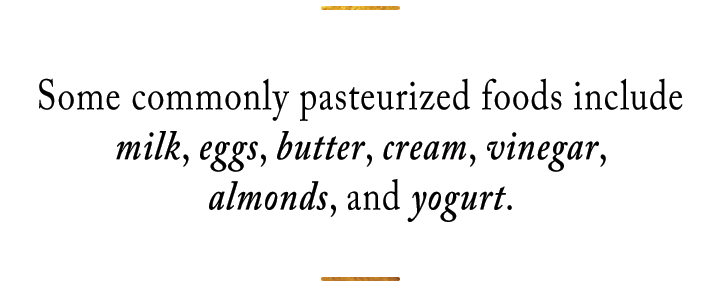
Every single one of the foods I just named are lacking key nutrients and enzymes – and I bet you thought most of those were healthy!
When you heat food above 118 degrees Fahrenheit for more than 30 minutes, you alter the food:
- Destroying delicate active enzymes
- Killing beneficial probiotic bacteria
- Denaturing fragile proteins
- Diminishing vitamin and mineral content
So why are we eating pasteurized foods again? Oh right, all that dysentery going around.
Unpasteurized foods will be able to give you more energy and beneficial enzymes, retain their vitamins, and can even help cure diseases.
So on your next trip to the store, what should you look for? Unpasteurized and RAW foods.
Processing
“Food processing is the set of methods and techniques used to transform raw ingredients into food or food into other forms for consumption by humans or animals either in the home or by the food processing industry.”
We’re talking about Chemical Processing, not the “process” of pureeing fruit in a food processor.
So how are foods processed?
- Refined sugar and/or High Fructose Corn Syrup are added
- Altered and engineered to trigger Cravings in your brain
- Artificial chemicals and Ingredients are added (These include preservatives, colorants, flavor, texturants)
- High in refined carbohydrates
- Nutrients are removed
- Fiber is lost
- Consumed faster and Digested Slower
- Trans Fats are added
I think most of us realize why that list is alarming. But there are all kinds of secrets in our food industry.
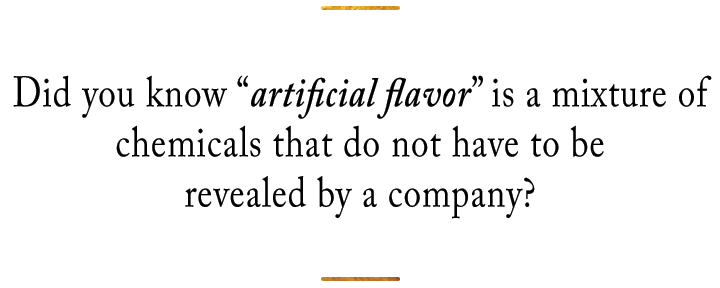
Like recipes, they are proprietary.
So what exactly is in that protein bar you’re holding? I bet you’re not so sure anymore.
But besides just making you “fat”, what are these processed foods doing to your body?
Buckle up, it’s a long list:
- Increased sugar intake can lead to insulin resistance, higher cholesterol, and damage to your metabolism. The long term effects? Heart disease, diabetes, obesity and cancer. Yikes!
- When food is altered to create a craving in your brain, you lose your ability to control consumption. Overconsumption leads to obesity.
- Artificial Ingredients are a little trickier. In the short term, they can cause headaches, allergic reactions, cramping, decreased concentration, gas, bloating, and weight gain. Long term, cancerous tumors, inflammation, heart disease, and diabetes. Part of the problem is, you don’t always know what’s in them.
- Refined carbohydrates are broken down quickly in the body, creating that “hungry” feeling again within a short time. You’ll want to keep eating every few hours. This can also lead to spikes and dips in blood sugar, which can affect your mood.
- Removing nutrients from foods is a big no-no. On a basic level, don’t you want thick nails and hair? Our food’s most straightforward function is to nourish and sustain us. Removing those nutrients weakens our body and our mind.
- Removing fiber from food removes friendly bacteria, can cause constipation, and can inhibit our ability to feel full after eating.
- Eating and digesting processed foods only burns about ½ the calories of consuming real foods. So expect to see that “processed cheese product” settle right around your waist.
- Trans fats lead to inflammation and heart disease.
Hopefully that was as eye-opening for you, as it was for me.

Next time you’re at the store, stock up on real foods – like apples, broccoli, bananas, avocados, hummus, and raw nuts. These will keep your body functioning properly.
GMOs
Genetically Modified Organisms have been getting lots of press recently.
As with pretty much anything these days, there are 2 camps: “they haven’t proved those are bad for you,” and “Heck No to GMO!”
Well, read this quote from plant biologist and PhD, Jonathan R. Latham:
“Science is not the only grounds on which GMOs should be judged. The commercial purpose of GMOs is not to feed the world or improve farming. Rather, they exist to gain intellectual property (i.e. patent rights) over seeds and plant breeding and to drive agriculture in directions that benefit agribusiness. This drive is occurring at the expense of farmers, consumers and the natural world. US Farmers, for example, have seen seed costs nearly quadruple and seed choices greatly narrow since the introduction of GMOs[3]. The fight over them is thus not of narrow importance. Their use affects us all.”
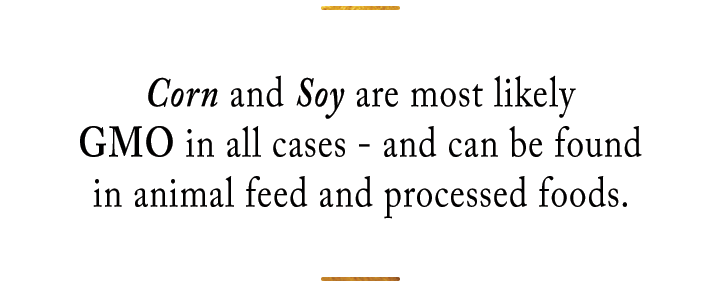
To be clear, GMO plants contain DNA from foreign organisms – including viruses and bacteria.
Yes, the government has approved the use of GMO foods. But do you agree with everything the government does?
If companies are using GMOs to control seed choices and increase costs, isn’t it possible they’re using that money to buy the government’s approval?
GMO seeds contain their own insecticides – as in, chemicals to deter insects from eating them. These insecticides very closely resemble anthrax and ricin – both TOXIC to humans.
GMO plants are also resistant to herbicides – and so farmers spray copious amounts on them. You know, things like RoundUp.
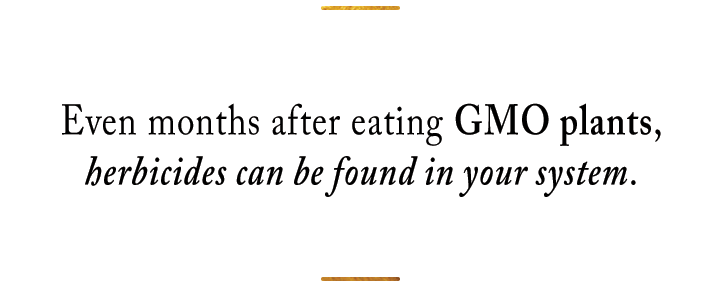
That’s terrifying!
Look for “No GMO project certified” items when grocery shopping.
I personally prefer my lunch without a side of cancer.
Wheat / Gluten Overindulgence
There are few things more satisfying than a warm cinnamon bun on a Sunday morning. And who doesn’t love a hearty sandwich at lunchtime? Don’t forget dinner – a big plate of pasta will leave you satiated until the next morning.
But is all the wheat killing us? Bringing on allergies, bloating, cancer, obesity?
I think the average person can admit to consuming too many empty carbs (they’re just soooo comforting), but is it time to ditch wheat for good?
Before you click away in disgust, keep in mind that many of your favorite foods are now available in wheat- and gluten-free forms.
The food industry sees the “trend” and has risen to the occasion.
“It’s true that refined grains, including wheat, have been stripped of much of their natural nutrition, and that processed carbohydrates have contributed to America’s obesity epidemic.”
Many Americans are choosing convenience and comfort over health. A balanced diet of real foods, including fruits and vegetables, is vital for overall health.
Refined Sugar
We eat more refined sugar today than any previous generation.
We add sugar to coffee, tea, and sweets, and manufacturers add it to everything, from salad dressings to crackers to low-fat foods.
So what’s the big deal?
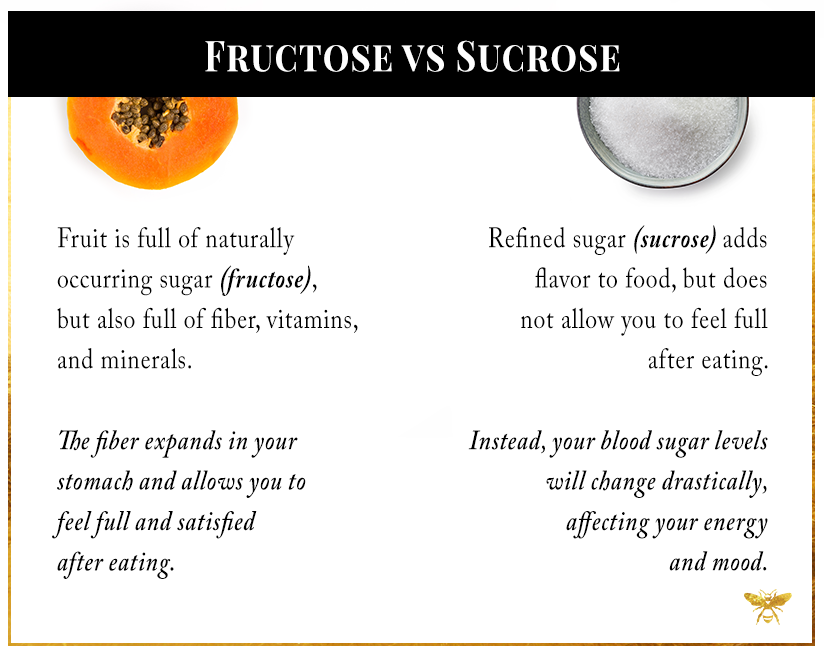
Fruit is full of naturally occurring sugar (fructose), but also full of fiber, vitamins, and minerals. The fiber expands in your stomach and allows you to feel full and satisfied after eating. The vitamins and minerals nourish your body.
Refined sugar (sucrose) adds flavor to food, but does not allow you to feel full after eating. Instead, your blood sugar levels will change drastically, affecting your energy and mood.
All of this increased intake of refined sugars and high-fructose corn syrup is leading to obesity and cancer in the long-term.
In the short-term, it is creating mood swings, crashes in energy levels, cravings, and exacerbating existing conditions.
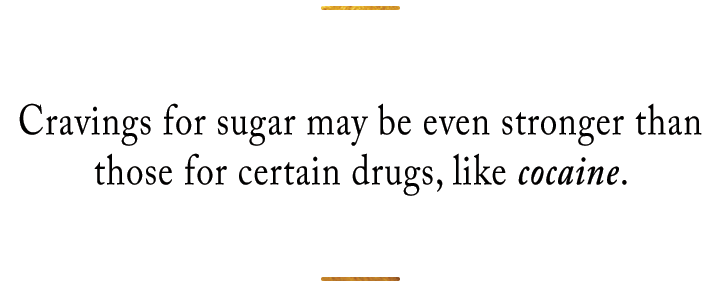
Maybe you’ve been careful to avoid buying products with “sugar” listed on the label. But don’t be fooled! Just because you don’t see that exact term, doesn’t mean you’re in the clear.
Here’s a list of some crafty words that really mean sugar:
-
-
- Agave nectar
- Beet sugar
- Brown rice syrup
- Brown sugar
- Cane sugar
- Coconut sugar
- Coconut palm sugar
- Corn syrup
- Dehydrated cane juice
- Dextrin
- Dextrose
- Evaporated cane juice
- Fructose
- Fruit juice concentrate
- High fructose corn syrup
- Honey
- Maltodextrin
- Malt syrup
- Maple syrup
- Molasses
- Palm sugar
- Raw sugar
- Rice syrup
- Sorghum
- Sucrose
- Sucralose
- Syrup
- Turbinado sugar
-
Quite the list, huh?
That’s a lot to remember not to eat. So are there any sweet alternatives that are safe?
- Stevia is a natural sweetener which goes great in coffee and tea. You can even use it in replace of sugar when baking. It won’t be a direct substitute though, so make sure to double check the conversions first.
- Xylitol is a natural sugar alcohol which is also great for coffee, tea & baking.
Decreasing or eliminating refined sugar from your diet is key to creating balance in your body.
Yeast and other bacteria feed on sugar, magnifying and increasing internal fungal infections. It can even disrupt your hormones!
And can you guess what happens when there’s a lot of sugar to feed that yeast?
Say hello to that irritating yeast infection.
Limiting sugar can regulate your periods and eliminate cramps. I love a piece of cake, but I love not having cramps and yeast infections more.
So What Can You Do?
Let’s start by what you shouldn’t do – mask your symptoms with those dozens of pills I mentioned earlier.
Before you roll your eyes at the pharmaceutical industry being an enemy, did you know that Americans spent $425 billion on medicines in 2015?
$425 billion. Kind of makes those organic apples sound affordable, doesn’t it?
Maybe you take aspirin for headaches, cough drops for colds, and the occasional dose of Nyquil when you really need to sleep.
That’s not so bad, right?
Let me ask you – have you ever seen a drug label without potential side effects? They also come with friendly reminders to always consult a physician before use, and you know, if you are suddenly dying from them, call 911.
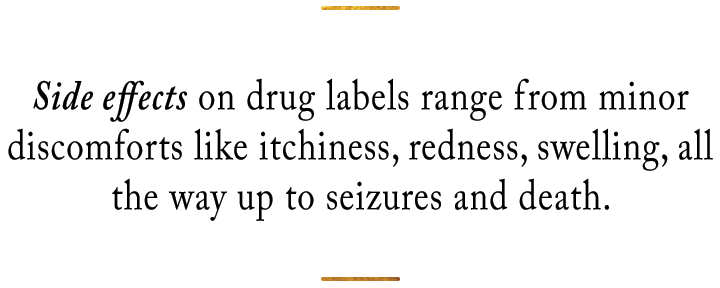
Let’s say you don’t experience a seizure this time. Or the next time. What about the 100th time?
Would you ever think to contribute it to a medication you’ve taken for years of your life? Or if you one day suffer from Alzheimer’s, will anyone attribute it to your long-term reliance on pharmaceuticals?
On top of the short-term and long-term side effects of medications, antibiotics kill both good and bad bacteria, weakening your gut health and leaving you susceptible to future infections.
As bad bacteria flourishes and your immune system weakens, your reliance on antibiotics can increase.
You can even build up a resistance to antibiotics, leaving you no option but to try stronger medications with the potential for more complications.
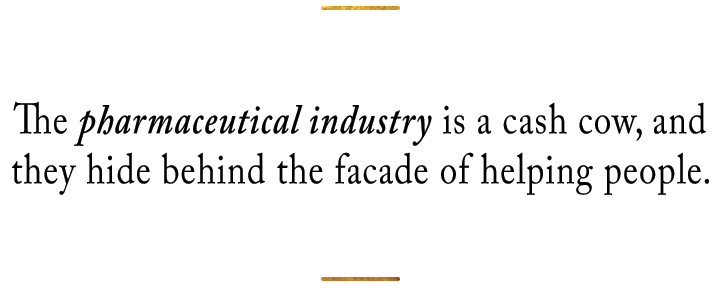
For example, did you know Bayer owns the rights to the seeds farmers plant, the herbicides farmers spray on their plants, aspirin, birth control pills, and cancer treatments?
From the first thing you consume to the last remedy you try, Bayer can control what you put in your body. And that’s just a quick sample of their products – they produce millions more.
But the idea is that they are selling you the cause and the cure – including those birth control pills you diligently take day after day.
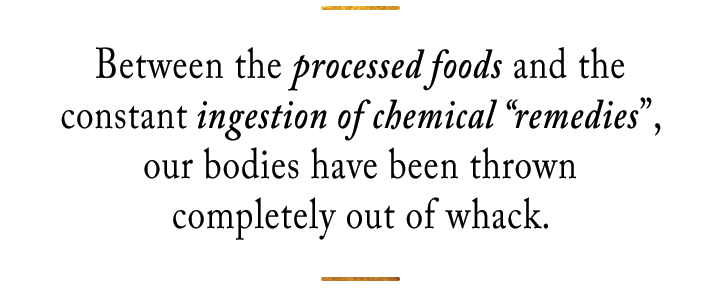
Nature intends for us to be part of her, not forsake her.
It’s no wonder our list of ailments has grown, including our overall satisfaction with life decreasing.
It Goes Beyond Diet
So you’re ready to change your diet. That’s great news!
But diet isn’t the only way that chemicals and foreign substances enter our systems.
Consider your average day: shampoo, conditioner, soap, deodorant, cosmetics, lotions, car exhaust, recycled air, cigarette smoke, alcohol, fragrances – all come into contact with your body!
Some are actually rubbed all over your largest organ: your skin.
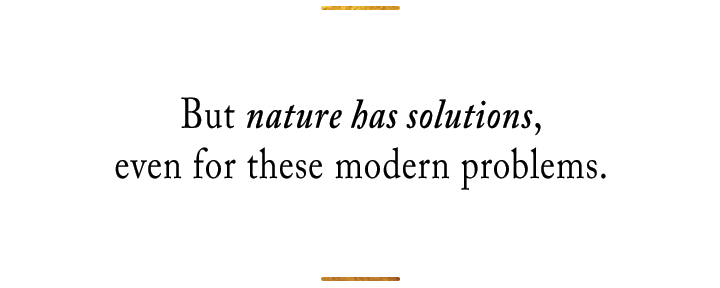
Essential oils can soothe headaches and skin irritations. Detox baths can calm and cleanse you. Plants like aloe vera have healing properties.
Trading your bagel with cream cheese for unpasteurized eggs with organic spinach is the first step.
The second step is exploring bone broth, kefir, probiotics, and sauerkraut, to keep your gut flora healthy and kill bad bacteria.
We are dedicated to providing you with information and resources to take a more holistic approach to healing and nourishing your body.
Prepare to Make Changes
We have been so conditioned to embrace this “modern” lifestyle that at first, a more natural approach will seem impossible.
You’ve probably thought at least one of these things at some point:
- There are too many products to replace!
- What about that new primer I just spent a fortune on?! That money can’t just be wasted!
- And there’s no way “natural” products can perform as well as the ones I have now, right?
Stop making excuses, and start making your health a priority.
We will offer you a step-by-step guide to easing into a more natural lifestyle. We will never recommend products that we don’t personally use.
At first, some products may sound expensive.
Yes, organic deodorant does cost more than a big-name brand. But, as you adjust you may see a savings.
How much do you spend each year on:
- diet pills
- constipation relief
- allergy medication
- snack foods and candy
- cough drops
- cough syrup
- Midol
- Aspirin
- Vitamins
- nail serums
- hair thickening or growth products
- or any prescription medications
I bet it’s a pretty penny, right?
Simple changes like trading soda for water can add up to a significant savings. Investing in a water bottle or pitcher with a filter can save you tons.
In many cases, organic cosmetics compete with large cosmetics companies on price.
Did you know that 62% of bankruptcies in the US are contributed to medical bills? So before you dismiss cancer and heart disease as “future” problems, don’t you plan for your future now?
Here’s How To Get Started
It is so easy to get overwhelmed. Don’t let yourself fall into that trap!
Before you change everything in your life, throwing away your birth control pills and relaxing in a detox bath with apple cider vinegar, start with small changes.
You’re not going to change your lifestyle and habits overnight. But, there are things you can do today to get you on the right path.
So where do you start?
We’ve created a 5 Step Guide to Clean Living to help guide you.
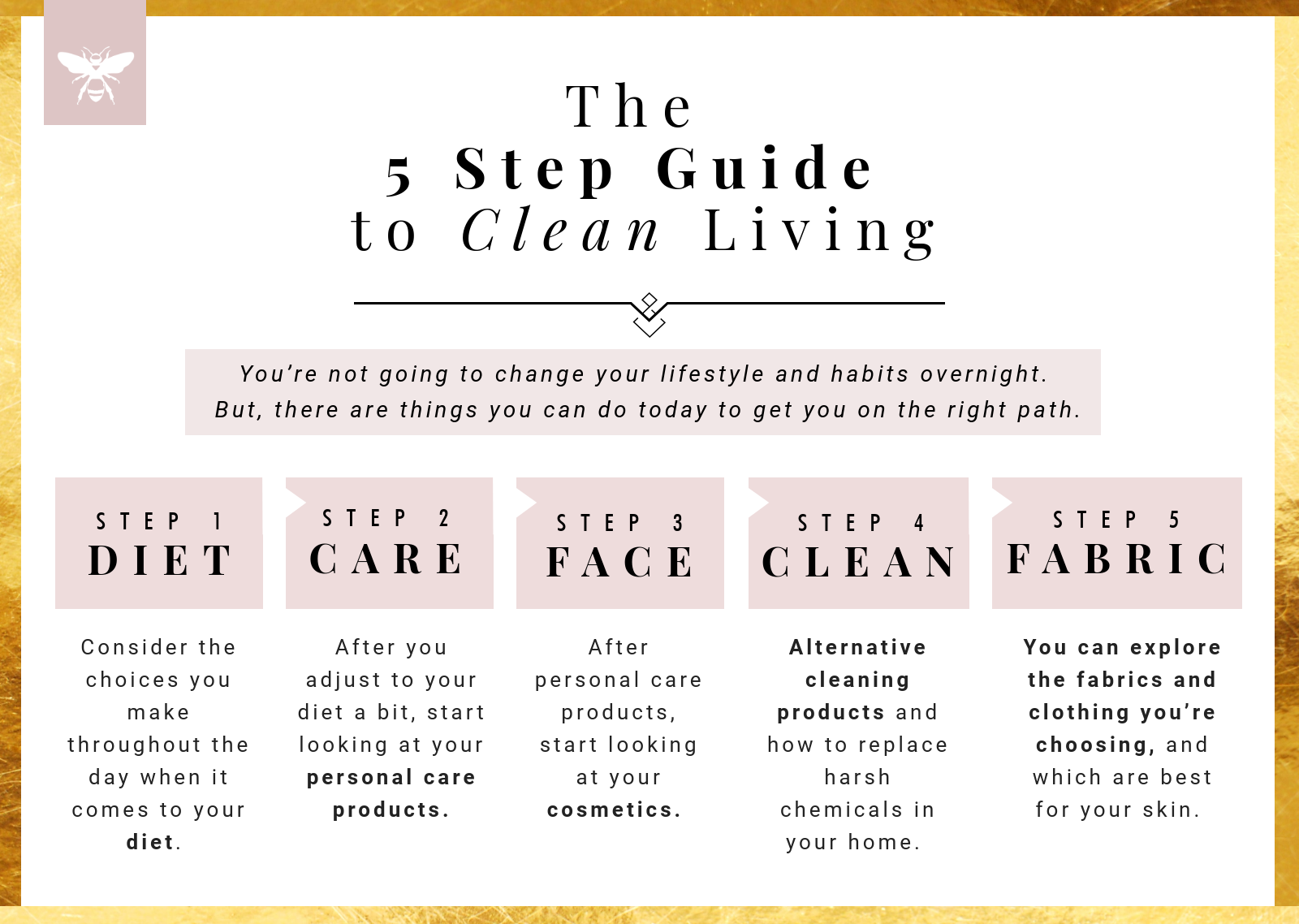
Step One: Diet
It all begins with foods we choose to feed ourselves.
Consider the choices you make throughout the day when it comes to your diet. Are you giving your body the nourishment it needs to function properly?
Think about what you eat for breakfast everyday. Can you start replacing wheat items with other choices?
And don’t just replace your bagel with a gluten-free one and call it a day. I mean can you replace your bagel smothered with cream cheese for eggs and spinach, a meal that will truly fill you up and nourish your body?
Are you shaking your head and thinking, “I’m much too busy to cook in the morning?”
Consider this: It takes much less time to make a vegan protein shake at home, than to stop for a bagel on your way to work.
It can be as simple as pea protein, a frozen banana, and spinach leaves in a shake – it’ll fill you up for hours.
Everyone has a different starting point, so it’s important to have realistic expectations for yourself.
You might not be ready to chow down on some Zoodles (zucchini noodles) yet. And that’s okay. Try swapping your traditional pasta for brown rice or quinoa varieties for now!
Cut back on the frozen dinners and try to create meals that contain proteins, fruits, and vegetables. Use carbs like quinoa and farro that are more easily digested.
Your body will thank you for these healthier choices and you’ll start to crave real, healthy foods.
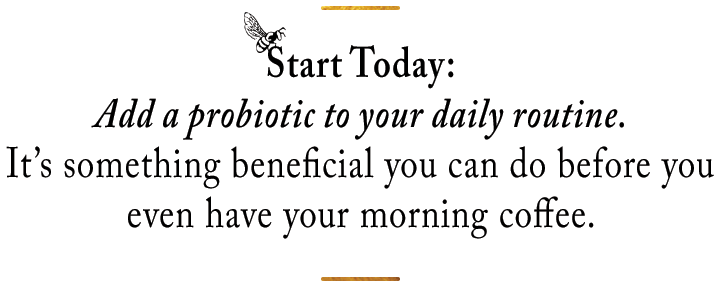
Step Two: Personal Care Products
After you adjust your diet a bit, start looking at your personal care products. Do they contain harmful chemicals like sulfates and parabens?
There are a myriad of better (effective) options available in many of your favorite stores – or with Prime shipping from Amazon.
We’ll walk you through things like natural shampoos, aluminum-free deodorants, and organic toothpastes free of fluoride.
Step Three: Cosmetics
After personal care products, start looking at your cosmetics.
Yes, this is going to be a tough one.
For many women, they have used these products for years and it can be hard to switch to a new brand.
We’re here to help with detailed reviews and product recommendations! We’ll show you ways you can easily create looks that are just as glamorous, only free of harmful ingredients.
Step Four: Cleaning Products & Household Items
As a final step, we’ll talk you through alternative cleaning products and how to replace harsh chemicals in your home. Have you ever researched those Glade Plug-Ins? Once you do, they may not smell as sweet to you.
Did you know that common household items like hydrogen peroxide, vinegar, and baking soda can clean as effectively as brand names like Lysol and Clorox? We’ll cover why you want to make the switch, as well as natural products that get the best reviews.
Step Five: Sustainable Clothing & Local Purveyors
As a final step towards a more pure existence, you can explore the fabrics and clothing you’re choosing, and which are best for your skin, the environment, and our planet.
You’ve probably heard the term, “shop local,” but not given it much thought. Shopping locally can give you access to affordable organic produce, beneficial raw honey, and unique regional treats. What’s more is you’ll be strengthening your community economy!
We’ll ease you into everything. And boy, will your body thank you.
Have you started on the path to clean living yet? Let us know in the comments!
Up Next: Better Beauty | An Introduction to Pure Glamour
